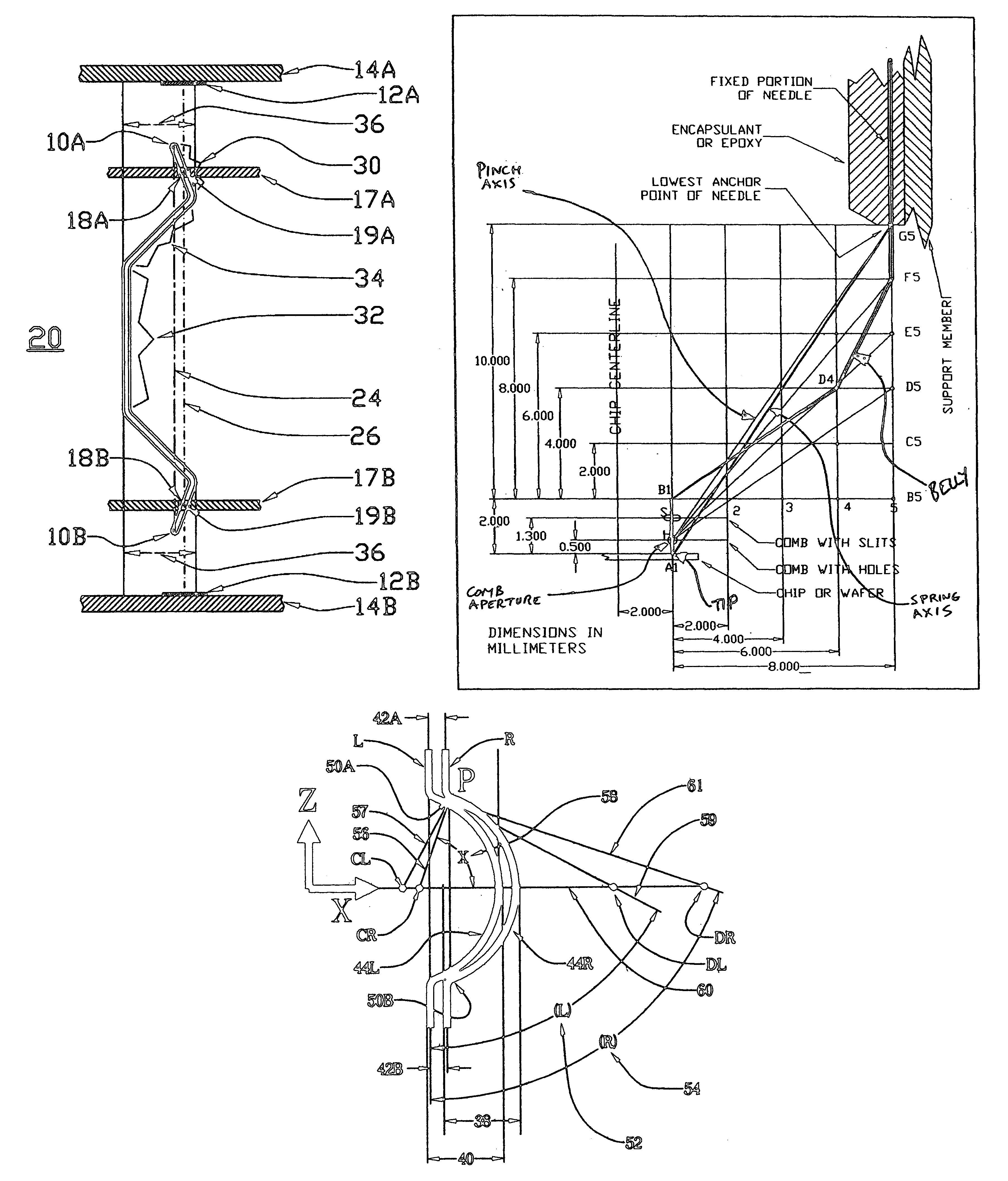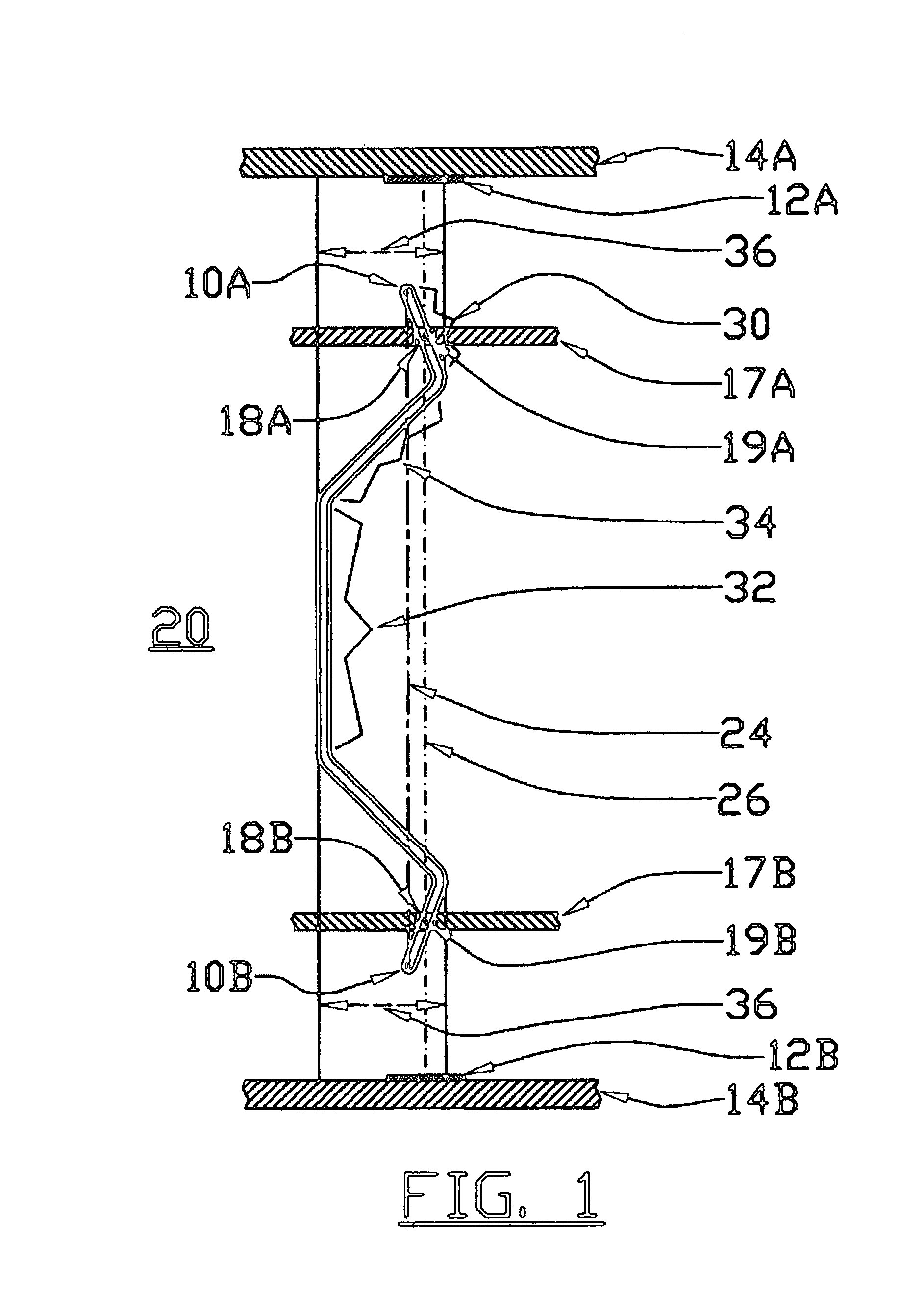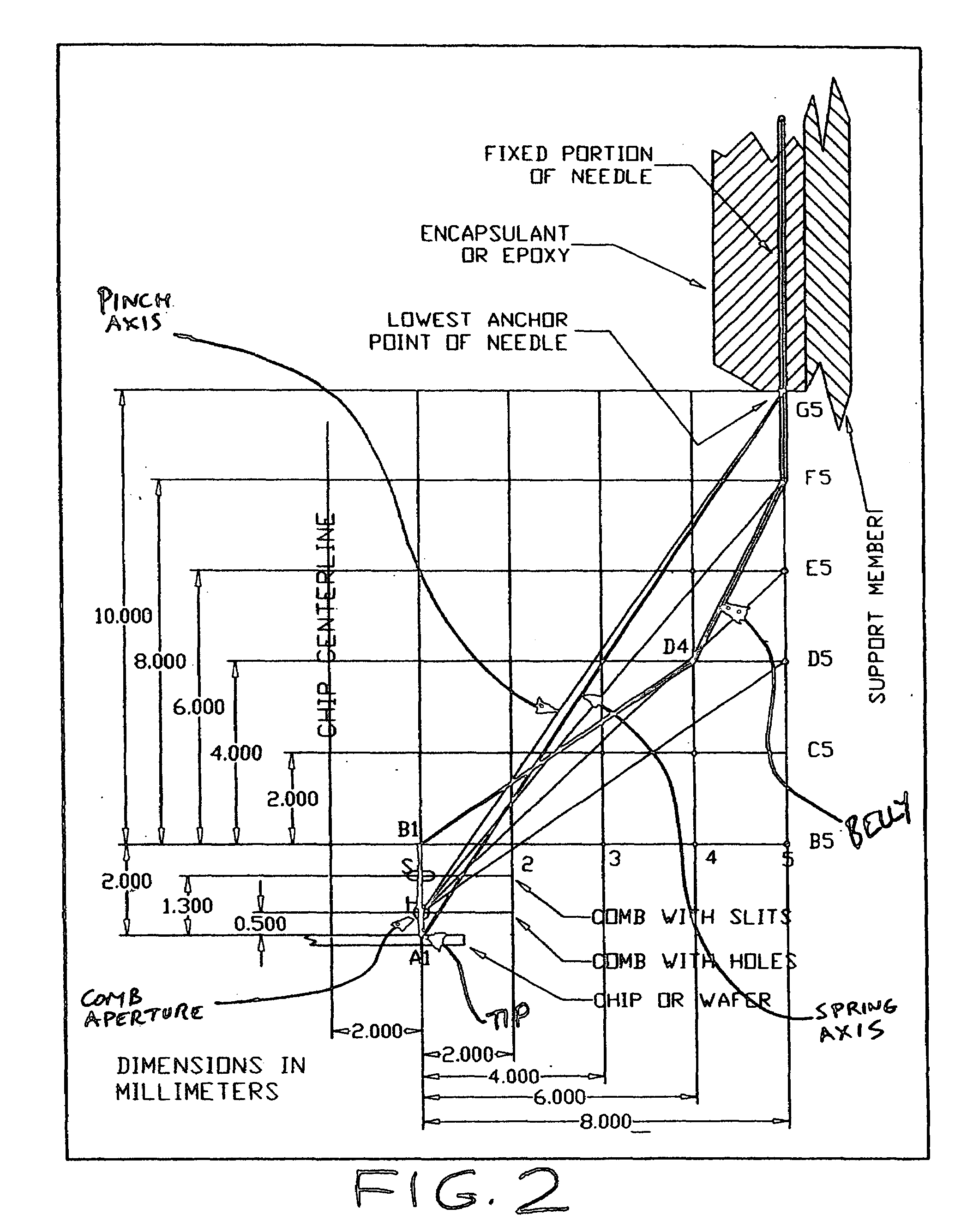Interconnection devices
a technology of interconnection devices and connectors, which is applied in the direction of coupling device connections, fault locations, instruments, etc., can solve the problems of increasing the cost of manufacturers, increasing the cost of testing devices through more expensive means, and reducing the number of devices. , the effect of increasing the cos
- Summary
- Abstract
- Description
- Claims
- Application Information
AI Technical Summary
Benefits of technology
Problems solved by technology
Method used
Image
Examples
embodiment
Preferred Embodiment
[0083]FIG. 5 shows an example of a “socket” or “connector”91 built and assembled according to the concepts and manufacturing and arrangements methods covered here, specifically using the staggered nested head-to-toe spring arrangement.
[0084]The contact springs 82L and 82R are located inside a socket 91. The socket 91 includes the upper and lower “combs”93A or 93B and the housing body 92. Depending on the application, the socket may also have a lid to push down
[0085]on the device under test (DUT), a latch to hold the lid down, and other peripheral components.
[0086]FIG. 7 shows an isometric view of the springs shown in FIG. 5, but without the housing, for clarity's purpose.
[0087]Let us also agree on the coordinate directions. If we look at the socket or the spring matrix from the top, then we will say that this is the x- and y-directions 101 and 102, as in FIGS. 6 and 7 If we look at the side view, as in FIG. 5, then the horizontal direction is the x-direction 101,...
illustration example
[0110]FIG. 9 is an illustration of parallel nested springs. In this case, the springs are “C”-shaped. They are shown under No-Load, i.e. with no deflection.
[0111]FIG. 10 shows the same springs, but under some load. The natural tendency of such springs, when compressed by an axial load, is to deform as shown. Their bellies have bulged, but because they are all parallel and nested in the same direction, they still do not touch. The tails of the springs tilt when compressed, as shown. Please notice the somewhat slanted hourglass shape of the holes in the top and bottom combs. This shape does not “fight” the natural tendency of the springs tails to rotate or tilt.
Wipe or Scrub
[0112]Assuming that the device under test (DUT) to be contacted by these springs is “fixed” horizontally or “guided” with respect to the combs, then the compression of the springs creates a horizontal relative motion between the spring tips and the contact pads of the DUT. This relative motion creates a “wiping” or...
application example 2
[0115]FIGS. 11 and 12 show a socket implementation containing a matrix of 20 by 20 “C” springs. We are looking at a side view in the x-z directions. This shows only one row of 20 springs. The other rows are behind and are hidden.
[0116]FIGS. 21 through 24 and 30 and 31 show the top view of similar sockets, showing the full matrix.
[0117]FIGS. 21 and 31 shows the top view of the socket, with the 20 rows, each having 20 springs.
[0118]The springs are shown in a “parallel nesting” arrangement, held in place with two combs. We also see a middle member.
[0119]The middle member in FIGS. 11 and 12, called a “slider”, moves back and forth with the movement of the bellies of the springs. The springs can slide and move freely through the holes of the slider, as well as through the holes of the top and bottom combs.
[0120]The slider has a number of functions. First, it keeps the springs “organized”. Second, it helps to prevent the springs from touching each other and “shorting. Third, it has anothe...
PUM
| Property | Measurement | Unit |
|---|---|---|
| angle | aaaaa | aaaaa |
| nesting angle | aaaaa | aaaaa |
| center distance | aaaaa | aaaaa |
Abstract
Description
Claims
Application Information
 Login to View More
Login to View More - R&D
- Intellectual Property
- Life Sciences
- Materials
- Tech Scout
- Unparalleled Data Quality
- Higher Quality Content
- 60% Fewer Hallucinations
Browse by: Latest US Patents, China's latest patents, Technical Efficacy Thesaurus, Application Domain, Technology Topic, Popular Technical Reports.
© 2025 PatSnap. All rights reserved.Legal|Privacy policy|Modern Slavery Act Transparency Statement|Sitemap|About US| Contact US: help@patsnap.com



